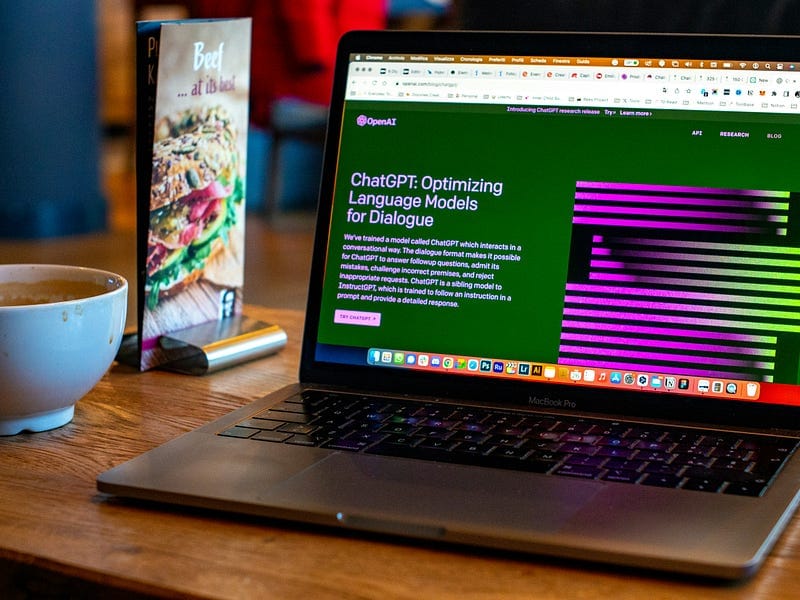GPT-5 Is Coming… And Honestly, I Don’t Think I’m Ready for It
GPT-5 is on the horizon — and here’s why it might change everything (and why it’s a little terrifying).

The future of AI is closer than you think!
GPT-5 Is Coming… And Honestly, I Don’t Think I’m Ready for It
There’s something both thrilling and terrifying about being alive at a time when artificial intelligence is growing faster than we can keep up with. And with whispers (and some loud announcements) about GPT-5 looming on the horizon, I’ve got a confession to make: I don’t think I’m ready for it.
Remember When GPT-3 Was “Too Smart”?
Let’s rewind a little.
Back in 2020, GPT-3 dropped, and the internet practically exploded. Writers, developers, entrepreneurs — all of us stood there with our jaws on the floor as we realized what it could do. Suddenly, AI could write poetry, debug code, answer trivia, summarize legal documents, and even crack jokes (sometimes better than your dad).
And just as we were getting used to GPT-3, along came GPT-4. Smarter, more nuanced, more helpful. It could analyze images, understand tone better, and hold more coherent conversations. It felt… well, almost human.
So now, the idea that GPT-5 is just around the corner? That it might be orders of magnitude more powerful? That has me pausing — and honestly, a little freaked out.
It’s Not Just Smarter — It’s Different
GPT-5 isn’t just “GPT-4, but better.” If the rumors and leaks hold true, this version might finally push AI into what we’ve long imagined: an agent-like system that can remember, reason, and act autonomously across tasks.
This means:
- Persistent memory of users, contexts, and tasks.
- Multi-modal fluency — not just language and images, but video, audio, even interaction.
- Advanced reasoning — not just predicting the next word, but solving complex problems with multiple steps and logical depth.
This isn’t just a chatbot anymore. It’s an assistant, a colleague, maybe even a companion.
And while that sounds exciting on paper, it also begs a scary question: Where do we fit in all this?
The Excitement… and the Existential Crisis
Don’t get me wrong — I’m all for progress. I’m a tech nerd. I love playing with the latest tools, automating workflows, and exploring the cutting edge. But GPT-5 feels like a leap, not a step.
Will it make us more productive? Almost definitely.
Will it open doors to new industries and creative possibilities? Absolutely.
But will it also:
- Make entire jobs obsolete in weeks, not years?
- Blur the line between human and machine-created content even more?
- Create a level of dependence on AI that we aren’t psychologically (or ethically) prepared for?
Unfortunately, yeah. Probably.
We Need Time to Catch Up — But AI Doesn’t Wait
Here’s the problem: humans evolve slowly. We take time to adjust, to build new systems, to rethink our ethics, education, and economies. AI, on the other hand, doesn’t wait. It just keeps getting better — faster.
GPT-5 will be trained on exponentially more data. It’ll be smarter out of the box. It’ll “understand” things in ways that might feel uncomfortably close to consciousness (even if that’s not technically what’s happening).
And we? We’re still figuring out how to regulate social media algorithms.
We need frameworks. Guidelines. Conversations. And we need them yesterday.
What Happens When It’s Not Just a Tool Anymore?
Right now, most of us use AI as a tool: it helps us write better emails, draft code, plan workouts, or summarize articles. But GPT-5 may not be just a tool. It may start acting like a partner — capable of collaborating on long-term projects, anticipating your needs, even managing other tools for you.
What does that mean for creativity? For learning? For human relationships?
If an AI can co-write your novel, build your website, negotiate contracts, and talk you through a breakup — what role do we play?
Do we become superhuman thanks to our AI sidekicks?
Or do we risk becoming… irrelevant?
Okay, Maybe I’m Being Dramatic. (But Am I?)
Look, maybe this is all hyperbole. Maybe GPT-5 will be just a solid upgrade — better summarization, more context, fewer hallucinations.
But even if that’s the case, it’s still a big deal. Because each leap brings us closer to the moment when we need to collectively pause and ask: What are we building? And are we truly ready for it?
Final Thoughts: Use the Tools, Don’t Be the Tool
At the end of the day, this isn’t about fearing GPT-5. It’s about respecting it.
We’re at an inflection point. The choices we make now — as creators, leaders, developers, and ordinary users — will shape the way AI integrates into our lives for decades to come.
So yes, GPT-5 is coming. And no, I’m not fully ready.
But maybe that’s a good thing.
Maybe that humility, that hesitation, is exactly what we need to make sure we don’t just sprint into the future — but build it thoughtfully, together.
What about you? Are you excited, terrified, curious — or all three at once?
Let’s talk in the comments.
If you found this piece thought-provoking, give it a clap (or five) and follow for more insights on AI, tech, and the human side of the digital revolution.





